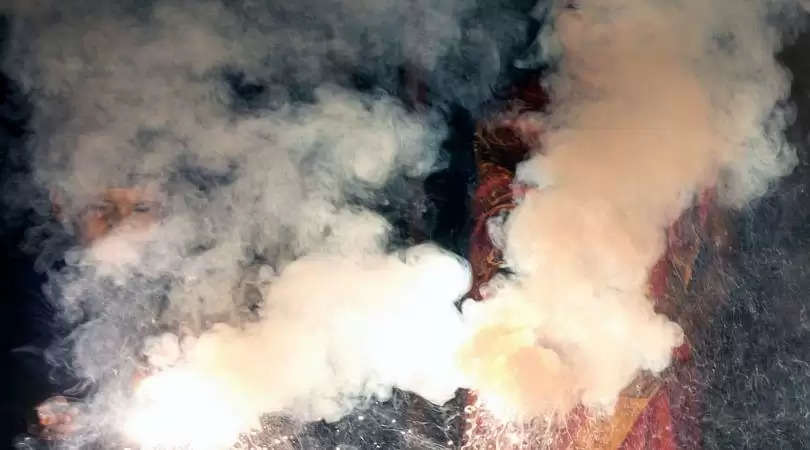Assam | Air pollution worsen in state after Diwali

GUWAHATI | November 10, 2018:
On Wednesday, an alarming rise in the rate of air pollution level has been recorded in the city after Diwali. The PM 2.5 level shot up to 240 micrograms, four times more than usual.
Diwali fireworks, which were seen and heard going off well past the permissible time slot allotted by the Supreme Court on Wednesday and Thursday, and the absence of rainfall have contributed to this sudden rise,
according to experts.
For More Assam News Click Here
The Pollution Control Board of Assam (PCBA) said there has been a slight dip in sound pollution levels when compared to previous year's Diwali celebrations, but a sharp rise in air pollution.
The PCBA report on ambient air quality monitoring during this Diwali was recorded at particulate matter (PM10) 299, a three-time rise from the standard 100 micrograms per meter cube on Wednesday.
Manoj Saikia, a senior environmental scientist of PCBA, told TOI, "The PM2.5 content in the city's air has also shown an abnormal rise during Diwali. From an average 60 micrograms per meter cube, it shot up to 240 micrograms on Wednesday, four times more than usual." As per the World Health Organisation (WHO), around 10 micrograms per metre cube is considered healthy.
The PCBA official explained that this has happened due to the high use of sparkles like phuljhari, charki and other fireworks.
The scientist added, "Though many opted to not burst firecrackers, helping in lowering the noise pollution level a bit, heavy use of sparkles and other fireworks has contributed to air pollution."
In addition, the chemicals used in the firecrackers and other sparkles have been found to be trebling the air pollution levels. Chemicals like barium nitrate, lithium, mercury, arsenic, sulphur dioxide, magnesium and copper, which are used to make crackers, are quite harmful to human health.
"With no rain and an increase of dust particles in air, the toxic elements spread during Diwali and create a smog-like situation. This harms the public and animals. Chemicals used in crackers can increase health problems like mental disorder and problems of the nervous system, heart, kidney, skin and even asthma," said a medical practitioner.
However, in comparison to the noise level recorded during last year's Diwali, which was around 79 decibels at residential zones in the city, this year it was recorded at around 76 decibels on Wednesday.
Source: TOI

















